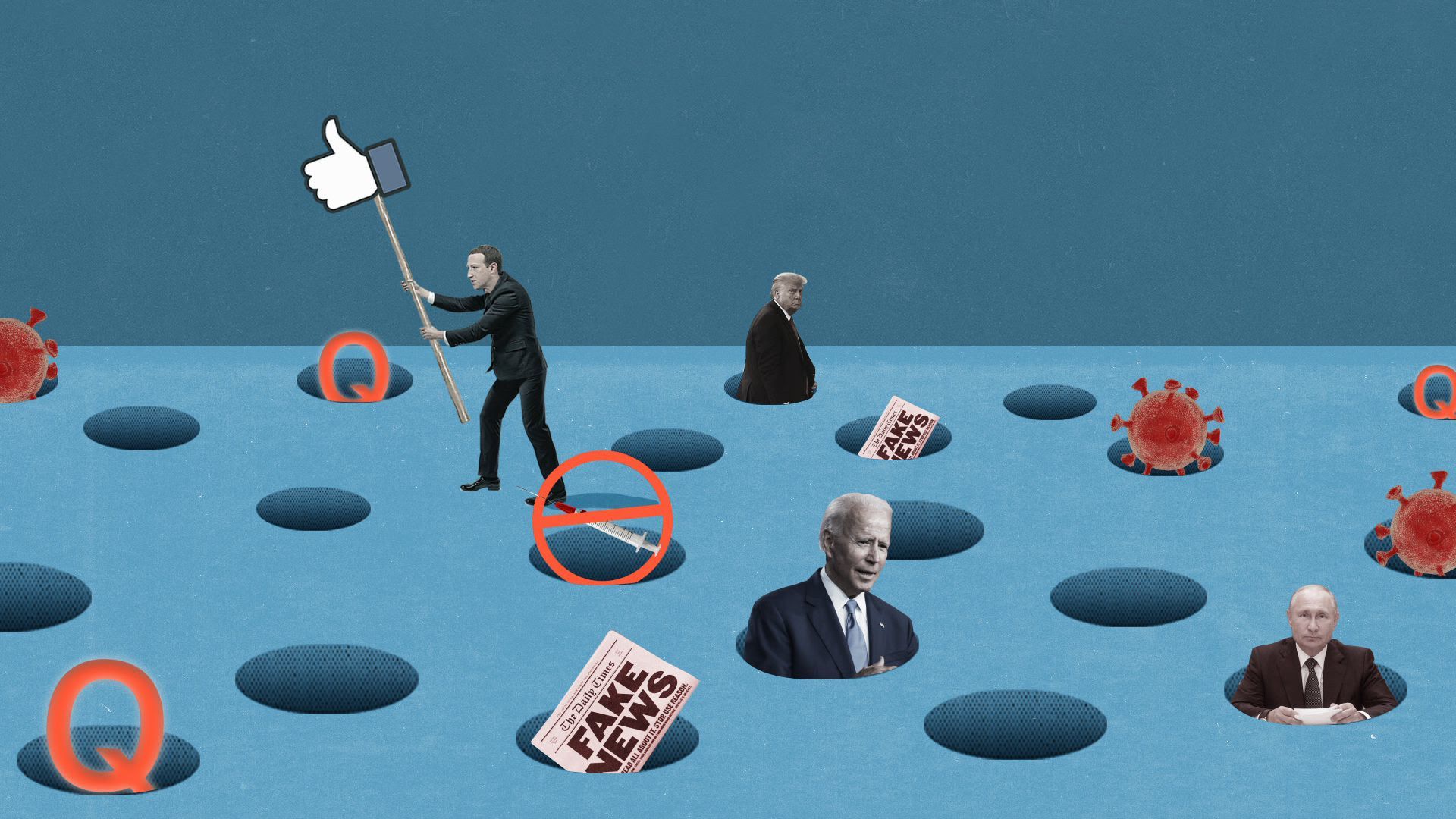What Mark Zuckerberg wishes he'd done differently
Add Axios as your preferred source to
see more of our stories on Google.

Illustration: Axios on HBO
If he were starting Facebook all over again, Mark Zuckerberg says he would spend more time telling the world "what our principles are."
What he's saying: "I really used to believe that the product by itself was everything, right?" Zuckerberg told Axios' Mike Allen in a wide-ranging new interview for "Axios on HBO." "And that if we if we built a good product, it didn't matter how we communicated about what we did and how we explained the principles behind the service — people would love and would use the product...."
The big picture: They have. Facebook has nearly two billion users worldwide today and is by far the world's largest internet service, with China as one giant holdout.
Zuckerberg says he regrets not explaining Facebook's free-speech ideals from the start.
- "I just wish that I'd spent more time earlier on communicating about what our principles are and what we stand for — you know, things like free expression and voice and that we're going to defend those."
- "Now a lot of people look at us and they see this as a successful company. With a lot of money. And it's a little hard now, I think, for us to go back and talk about our principles and have people see the principles for anything but, you know, some talking points."
Yes, but: Today Facebook finds itself at the center of enormous controversy as politicians, critics and the social network's own users hold it to account for spreading misinformation, abusing personal information and failing to limit hate speech.
- The company has been accused of giving free rein to oppressive regimes, as for instance in Myanmar; providing a channel for foreign interference in U.S. elections; and, just in recent weeks, allowing right wing militia groups to organize a rally that led to a shooting.
- Critics argue that Facebook's algorithms appear to favor extreme speech and are prone to manipulation — all at such a colossal scale that, when problems are spotted, it's often too late to undo the damage.
Our thought bubble: Facebook's problems look deeper than a simple failure to communicate about its core beliefs. As multiple insider accounts have described, for too long it was a company ready to bend or ditch its principles in exchange for growth.
More highlights from Zuckerberg's "Axios on HBO" interview:
No conservative bent: It's "just wrong" to consider Facebook a right-wing echo chamber, Zuckerberg said, even though conservative voices top the platform's most-engaged-with content.
- "It's true that partisan content often has kind of a higher percent of people ... engaging with it, commenting on it, liking it," Zuckerberg told Axios. "But I think it's important to differentiate that from, broadly, what people are seeing and reading and learning about on our service."
Won't take down anti-vaxxer posts: Zuckerberg said he's not ready to move against anti-vaxxers the way he did against COVID misinformation: "If someone is pointing out a case where a vaccine caused harm or that they're worried about it — you know, that's a difficult thing to say from my perspective that you shouldn't be allowed to express at all."
Calls for investigation of Apple's App Store: "I do think that there are questions that people should be looking into about that control of the App Store and whether that is enabling as robust of a competitive dynamic."
Taking down threats against election officials: One red line Zuckerberg is willing to draw, he said, is to "very aggressively take down any threats against those people who are going to be involved in doing the counting and making sure that the election goes the way it's supposed to."
